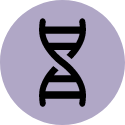Project FORESIGHT is a business-guided self-evaluation of forensic science laboratories across the globe. The participating laboratories represent local, regional, state, and national agencies. Economics, accounting, finance, and forensic faculty provide assistance, guidance, and analysis. Laboratories participating in Project FORESIGHT have developed standardized definitions for metrics to evaluate work processes, linking financial information to work tasks, and functions. Laboratory managers can then assess resource allocations, efficiencies, and value of services—the mission of Project FORESIGHT is to measure, preserve what works, and change what does not [Description provided by the WVU website].









